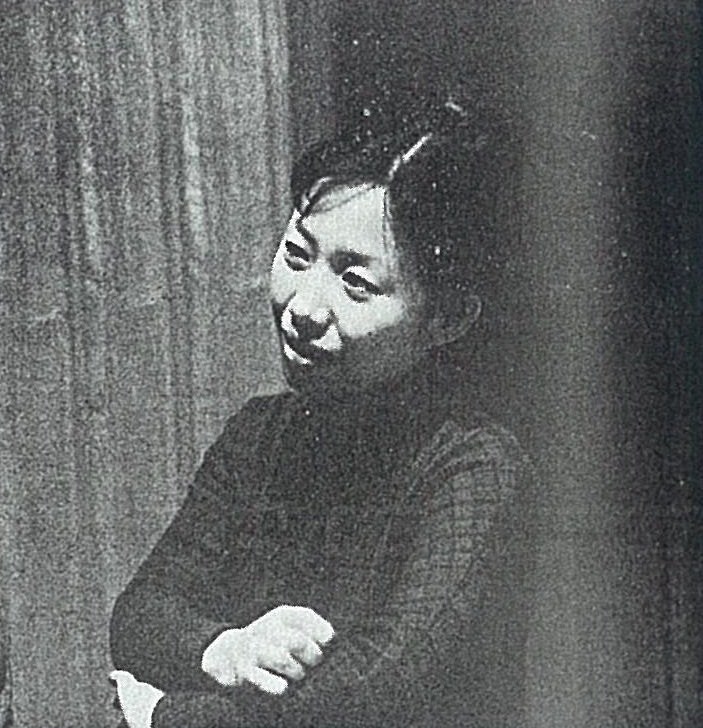|
Quicksand (Tanizaki Novel)
''Quicksand'', originally published in Japan as , is a novel by the Japanese author Jun'ichirō Tanizaki. It was written in serial format between 1928 and 1930 for the magazine ''Kaizō''. The last of Tanizaki's major novels translated into English, it concerns a four-way bisexual love affair between upper-crust denizens of Osaka. Title The Japanese title, ''Manji'', refers to the four-pronged Buddhist swastika, a symbol of the four lovers. The English title refers to the destructive cycle of obsession and jealousy faced by the four main characters. Plot The story is narrated by Sonoko Kakiuchi, a young woman from Osaka. At the start of the novel she lives comfortably with her husband Kotaro, and attends art classes at a local women's school. Rumors spread around the school that Sonoko is having a lesbian affair with another student, the beautiful young Mitsuko. Sonoko finds herself drawn to Mitsuko, though she barely knows her, and she proceeds to forge a friendship with her. Soo ... [...More Info...] [...Related Items...] OR: [Wikipedia] [Google] [Baidu] |
Jun'ichirō Tanizaki
was a Japanese author who is considered to be one of the most prominent figures in modern Japanese literature. The tone and subject matter of his work ranges from shocking depictions of sexuality and destructive erotic obsessions to subtle portrayals of the dynamics of family life within the context of the rapid changes in 20th-century Japanese society. Frequently, his stories are narrated in the context of a search for cultural identity in which constructions of the West and Japanese tradition are juxtaposed. He was one of six authors on the final shortlist for the Nobel Prize in Literature in 1964, the year before his death. Biography Early life Tanizaki was born into a well-to-do merchant class family in Nihonbashi, Tokyo, where his uncle owned a printing press, which had been established by his grandfather. His parents were Kuragorō and Seki Tanizaki. His older brother, Kumakichi, died three days after his birth, which made him the next eldest son of the family. Tani ... [...More Info...] [...Related Items...] OR: [Wikipedia] [Google] [Baidu] |
Kyōko Kishida
was a Japanese actress, voice actress, and writer of children's books. Career Kishida became an actress in 1950, and starred in a Yukio Mishima production of the 1960 film '' Salome''. Her film and television drama credits number in the hundreds. Among them are four Taiga drama series on NHK television, with roles such as Aguri (the wife of Asano Naganori and Yodo-Dono (the wife of Toyotomi Hideyoshi). She appeared in various roles, including acting and narrating, in various ''Ōoku'' series on television. In the series ''Gokenin Zankurō'', she portrayed the mother of the title character (played by Ken Watanabe), and narrated a ''Lone Wolf and Cub'' television series. Kishida's film credits include Yasujirō Ozu's ''An Autumn Afternoon'' (1962), ''The Broken Commandment'' (based on a novel by Shimazaki Toson), Hiroshi Teshigahara's ''Woman in the Dunes'' (1964) and ''The Face of Another'' (1966) (both from novels by Kōbō Abe), Yasuzo Masumura's '' Manji'' (1964) (based on a n ... [...More Info...] [...Related Items...] OR: [Wikipedia] [Google] [Baidu] |
Japanese Novels Adapted Into Films
Japanese may refer to: * Something from or related to Japan, an island country in East Asia * Japanese language, spoken mainly in Japan * Japanese people, the ethnic group that identifies with Japan through ancestry or culture ** Japanese diaspora, Japanese emigrants and their descendants around the world * Japanese citizens, nationals of Japan under Japanese nationality law ** Foreign-born Japanese, naturalized citizens of Japan * Japanese writing system, consisting of kanji and kana * Japanese cuisine, the food and food culture of Japan See also * List of Japanese people * * Japonica (other) * Japonicum * Japonicus * Japanese studies Japanese studies (Japanese: ) or Japan studies (sometimes Japanology in Europe), is a sub-field of area studies or East Asian studies involved in social sciences and humanities research on Japan. It incorporates fields such as the study of Japanese ... {{disambiguation Language and nationality disambiguation pages ... [...More Info...] [...Related Items...] OR: [Wikipedia] [Google] [Baidu] |
Novels Set In Osaka
A novel is a relatively long work of narrative fiction, typically written in prose and published as a book. The present English word for a long work of prose fiction derives from the for "new", "news", or "short story of something new", itself from the la, novella, a singular noun use of the neuter plural of ''novellus'', diminutive of ''novus'', meaning "new". Some novelists, including Nathaniel Hawthorne, Herman Melville, Ann Radcliffe, John Cowper Powys, preferred the term "romance" to describe their novels. According to Margaret Doody, the novel has "a continuous and comprehensive history of about two thousand years", with its origins in the Ancient Greek and Roman novel, in Chivalric romance, and in the tradition of the Italian renaissance novella.Margaret Anne Doody''The True Story of the Novel'' New Brunswick, NJ: Rutgers University Press, 1996, rept. 1997, p. 1. Retrieved 25 April 2014. The ancient romance form was revived by Romanticism, especially the historica ... [...More Info...] [...Related Items...] OR: [Wikipedia] [Google] [Baidu] |


